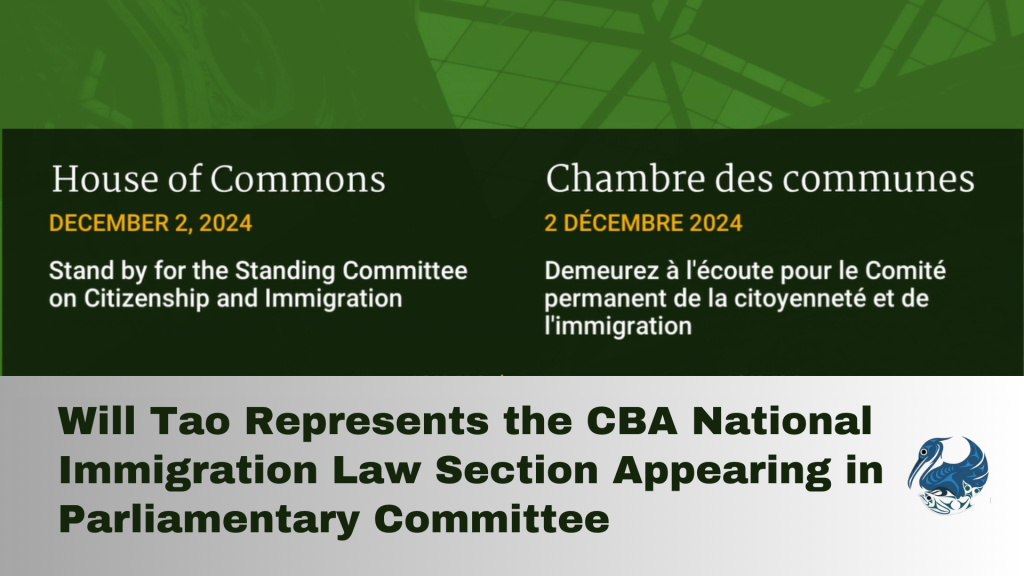
Will Tao, along with CBA Chair Kamaljit Lehal, represented the Canadian Bar Association appearing before the Standing Committee on Citizenship and Immigration on December 2, 2024. He made presentations on the recent reforms to the International Student Program to members of Parliaments. Check out Will and Kamaljit’s 5-minute speech below! Will starts at 02:20.
Five recommendations were presented:
1. The Government should prioritize creating pathways to permanent residency for students already in Canada.
There are students already here, who have studied and worked here, are well-established (some even having arrived here in their youth). They are permanent residents, but for having received the status. Canadians have likewise invested in and supported these students. As such, we need to implement unique pathway programs, including dedicated Express Entry draws, targeted at filling labour shortages and aimed at ensuring positive long-term outcomes for not only our economy but also for the future immigrants and their families. A broad range of stakeholders must be consulted when building these programs. We understand that there is a “In Canada Focus” set out in the levels plan and minister’s mandate, but how this is operationalized must be made clearer given the current high stakes.
2. We should halt the systemic removal of international students with no pathway to PR until the available pathways and exemptions are made clear.
As a result of recent changes, many students will find themselves without pathways to permanent residency, having lost status or fallen into non-compliance due to circumstances outside of their control. We must explore new ways to facilitate temporary and permanent measures for these individuals utilizing the Minister’s authority to consider implementing new public policies and revise existing ones. Coordinated efforts to systematically remove and refuse students must be halted pending urgent efforts to first create and clarify the availability of these pathways.
3. Federal and provincial governments must collaborate on a long-term plan for managing international student enrollment.
This includes clearly defining the criteria for Designated Learning Institutions (DLIs) and implementing measures to disincentivize exploitation, reduce opportunities for abuse, and provide effective oversight of agents, recruiters and employers.
We do recognize the positive efforts in the latest regulatory amendments as it pertains to enforcing stricter compliance measures on DLIs.
4.We should introduce legislation to deter bad actors who prey on international students, including harsher penalties for fraud and large-scale misrepresentations. Investigate these problems not as just ones of overseas agents and ghost consultants, but wrongdoings along what has become a human supply chain of student exploitation.
5. A two-tier system should not be adopted. International students should have the same flexibility as local students to change studies, without needing to apply for a new study permit and possibly become non-compliant while waiting.




